Technology
What’s New in iOS 18.4.1? Apple’s Latest Security Update Explained
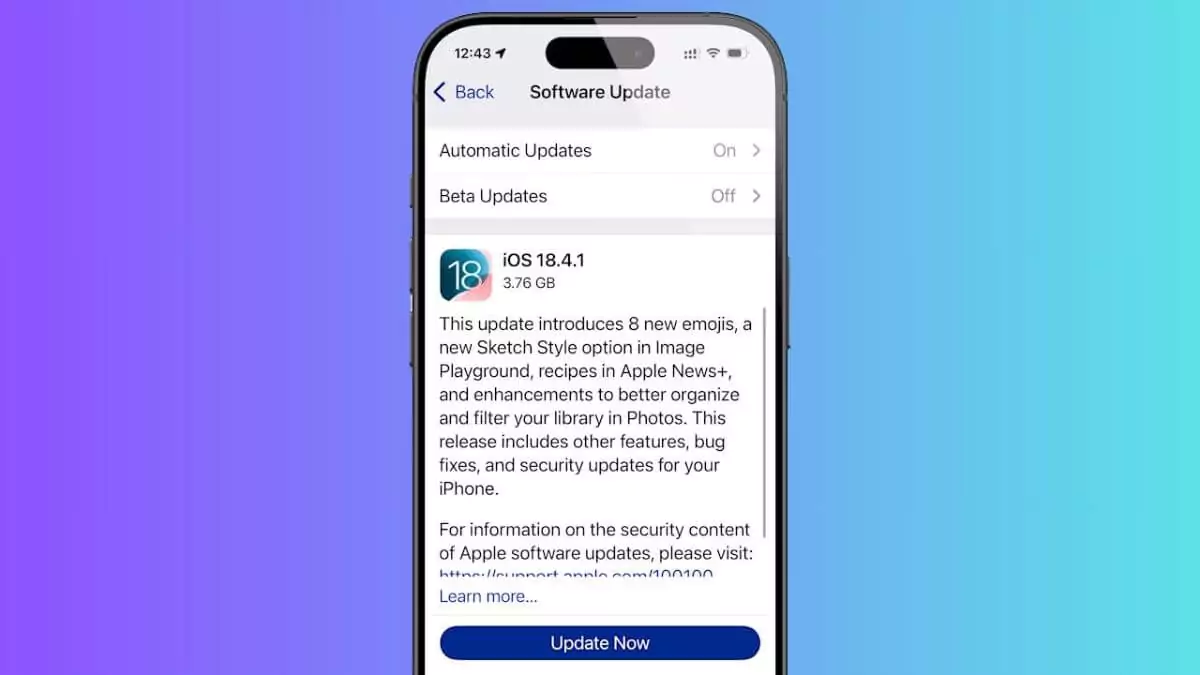
This update underscores Apple’s commitment to security, especially as cyber threats evolve. With vulnerabilities actively exploited in targeted attacks, understanding the changes in iOS 18.4.1 is essential for users concerned about their data privacy and device safety.
The primary focus of iOS 18.4.1 is to patch two significant security flaws. The first, tracked as CVE-2025-31200, affects CoreAudio, where a maliciously crafted audio file could lead to code execution. Apple confirmed this flaw was exploited in “extremely sophisticated attacks against specific targeted individuals,” as noted by The Hacker News. The company fixed this memory corruption issue with improved bounds checking, preventing attackers from leveraging audio streams to compromise devices. The second vulnerability involved pointer authentication code, allowing an attacker with arbitrary read and write capabilities to bypass security features. Apple addressed this by removing the vulnerable code, enhancing overall system integrity.
Beyond security, iOS 18.4.1 includes a fix for a CarPlay bug that prevented wireless connections in certain vehicles, a practical improvement for users relying on in-car systems. This update also applies to iPadOS 18.4.1, macOS Sequoia 15.4.1, tvOS 18.4.1, and visionOS 2.4.1, ensuring a unified security patch across Apple’s ecosystem. However, Apple has not released a corresponding update for watchOS, leaving Apple Watch users waiting for future protection.
The urgency of this update stems from Apple’s acknowledgment of active exploitation. Reports from CNET indicate that these attacks targeted specific individuals, potentially including journalists, dissidents, or government officials, using highly advanced methods. This aligns with Apple’s history of addressing zero-day vulnerabilities, such as those patched in iOS 17.7.5 earlier this year. The company’s decision to issue a mid-cycle update rather than waiting for iOS 18.5 reflects the severity of the threat, a move praised by security experts for its proactive stance.
Despite the focus on security, some users may wonder about the update’s impact on performance. Apple has not detailed significant performance enhancements, suggesting iOS 18.4.1 is primarily a security patch. However, the CarPlay fix could improve user experience for affected vehicle owners. For those unable to update immediately, Apple advises keeping devices disconnected from untrusted networks and avoiding suspicious audio files, though this is a temporary measure at best.
The broader implications of this update highlight the ongoing challenge of cybersecurity in the mobile era. As attackers develop more sophisticated methods, companies like Apple must balance rapid response with user trust. This incident also raises questions about the global tech rivalry, with some speculating that state-sponsored actors may be involved, though Apple has not pointed to any specific culprit. For now, the focus remains on urging users to update to mitigate risks.
As cyber threats continue to evolve, staying informed about updates like iOS 18.4.1 is crucial. Apple’s swift action demonstrates its dedication to user safety, but it also serves as a reminder to regularly check for software updates. Have you updated your iPhone yet? Share your thoughts in the comments, and stay updated on tech news at briskfeeds.com.
Technology
Apple Warns iPhone Users to Delete Google Chrome Over Privacy Concerns
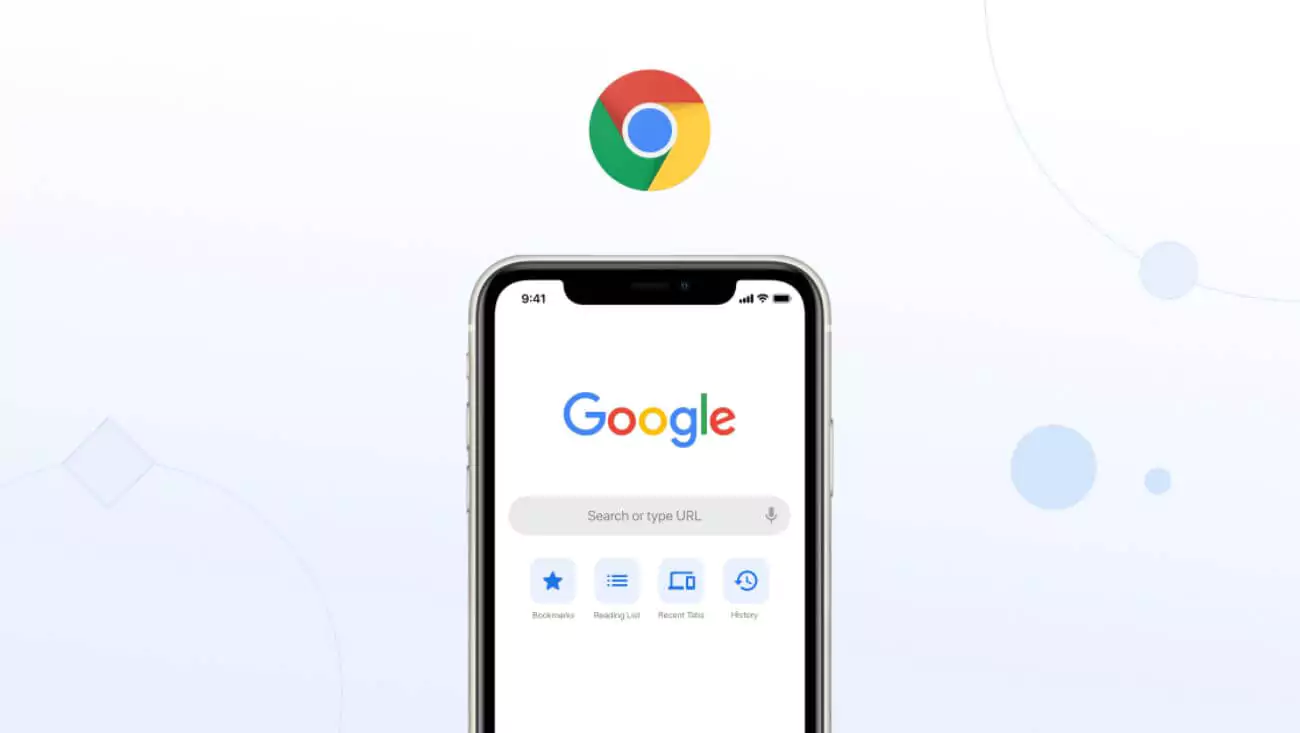
April 28, 2025, Cupertino, California – Apple has issued a stark warning to iPhone users, urging them to delete Google Chrome due to significant privacy risks associated with the popular browser. The alert, which highlights Chrome’s tracking practices, comes amid growing tensions between Apple and Google over user data, spotlighting a broader debate about privacy in the tech industry. As consumers become increasingly aware of how their data is handled, Apple’s move could reshape how iPhone users approach online browsing.
According to NY Post, Apple’s warning stems from Chrome’s reliance on third-party cookies, which Google recently decided to retain despite earlier promises to phase them out. These cookies enable advertisers to track users across the web, collecting data on browsing habits, search history, and more. Apple’s advisory specifically targets iPhone users, noting that Chrome’s settings on iOS do not allow users to disable these cookies, leaving them vulnerable to invasive tracking. This issue is particularly concerning given the rise of AI-driven privacy concerns, as companies increasingly use advanced technologies to collect and analyze user data.
Apple has long positioned itself as a champion of user privacy, often contrasting its approach with Google’s ad-driven business model. Forbes reports that Apple’s latest campaign includes a series of videos mimicking Alfred Hitchcock’s The Birds, depicting trackers as birds spying on users. The campaign, titled Flock, is a direct jab at Google’s initial tracking cookie replacement plan, Federated Learning of Cohorts (FLoC), which Apple mocked for its privacy shortcomings. Apple’s message is clear: iPhone users should switch to Safari, which offers more robust privacy controls, including the ability to block third-party cookies by default. This warning comes at a time when privacy features are becoming a key differentiator, as seen with WhatsApp’s advanced privacy controls that block screenshots and exports to protect user data.
The privacy risks associated with Chrome are not new, but Apple’s alert underscores their severity on iOS devices. AL.com notes that Google’s decision to maintain third-party cookies affects Chrome’s 3 billion users, including an estimated 400 million iPhone users. Unlike Android, where users can disable tracking cookies, Chrome on iOS automatically enables them, and disabling them requires clearing cookies entirely—a process that signs users out of websites and deletes saved preferences. This lack of control has fueled Apple’s criticism, especially as Google aims to convert more iPhone users from Safari to Chrome to bolster its search dominance, a strategy that could be disrupted by TikTok’s potential ban and its impact on digital advertising.
What iPhone Users Can Do
Here’s a breakdown of the situation and user options:
- Privacy Risk: Chrome on iOS enables third-party cookies by default, with no option to disable them without clearing all cookies.
- Apple’s Recommendation: Switch to Safari, which blocks third-party cookies and offers enhanced privacy features.
- Alternative Option: Use Chrome’s Incognito Mode, which offers better privacy but comes with trade-offs in functionality.
- Broader Context: The warning reflects ongoing tensions between Apple and Google over user data and privacy practices.
Apple’s warning also highlights the broader implications of in-app browser security risks, a topic that has gained attention in recent years. Colitco points out that Chrome’s tracking practices are part of a larger issue with in-app browsers, which can monitor user activity even within apps like Instagram and Facebook. This aligns with Apple’s App Tracking Transparency (ATT) feature, introduced in 2021, which requires apps to seek permission before tracking users across different platforms. However, ATT does not fully address tracking within in-app browsers, leaving a gap that Chrome exploits on iOS. For users concerned about digital safety, exploring AI-driven privacy solutions could provide additional context on how companies are addressing these challenges.
The tech industry is at a crossroads when it comes to privacy, with Apple and Google representing two opposing philosophies. Apple’s focus on user control and data minimization contrasts sharply with Google’s ad-driven model, which relies on extensive data collection to fuel its advertising business. This clash has been evident in other areas, such as Google’s Veo 2 rollout, which raised questions about data usage in AI-generated content. As privacy becomes a top priority for consumers, Apple’s warning could push more iPhone users to reconsider their browser choices, potentially shifting the balance in the ongoing browser wars.
For iPhone users, the decision to delete Chrome may depend on their priorities. Safari offers a more privacy-focused experience, but Chrome’s integration with Google services like Gmail and Drive remains a draw for many. Those who choose to keep Chrome can mitigate risks by using Incognito Mode or regularly clearing cookies, though these solutions are far from ideal. As the debate over privacy continues, Apple’s warning serves as a reminder of the importance of understanding how apps and browsers handle personal data. What’s your take on Apple’s alert? Are you switching to Safari, or sticking with Chrome? Share your thoughts in the comments, and let’s discuss the future of online privacy.
Technology
Apple Smart Glasses Move Closer to Reality with Apple Intelligence Integration
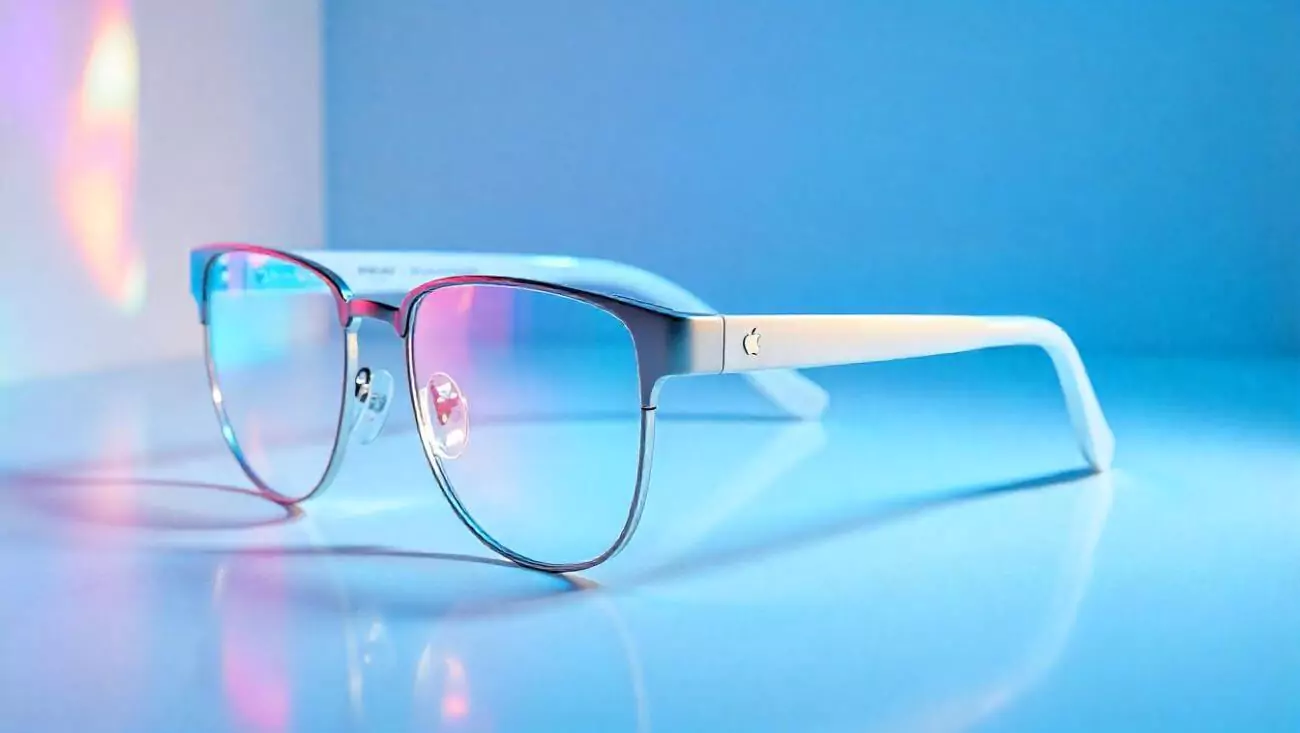
April 27, 2025, Cupertino, California – Apple is making significant strides toward launching its long-rumored smart glasses, with recent reports indicating that the company is actively developing a device that could integrate its Apple Intelligence technology. The project, which has been in development for years, aims to compete with existing smart glasses like Meta’s Ray-Ban collaboration while offering a sleek, iPhone-powered design that aligns with Apple’s ecosystem. As wearable technology continues to evolve, Apple’s entry into this space could redefine how users interact with augmented reality (AR) and AI in their daily lives.
According to 9to5Mac, Apple’s smart glasses project is moving closer to reality, with the company focusing on a device that relies on the iPhone for processing power, similar to the original Apple Watch. This approach minimizes the need for bulky hardware, allowing for a lightweight design that prioritizes comfort and style. The glasses are expected to feature Apple Intelligence, the company’s AI platform, which could enable features like real-time language translation, navigation overlays, and contextual notifications. This integration aligns with Apple’s broader AI strategy, as seen in Apple’s use of differential privacy to train its AI models while protecting user data.
The smart glasses are also expected to include advanced displays and sensors, as reported by WCCFTech. Apple is reportedly working on micro-LED displays to deliver high-quality visuals for AR experiences, such as displaying directions or notifications directly in the user’s field of view. Additionally, the glasses may incorporate cameras and microphones to support voice commands via Siri, which has been revamped with Apple Intelligence to handle more complex queries. This could make the glasses a seamless extension of the iPhone, much like how Google’s Gemini app uses lock screen widgets to enhance accessibility on iOS devices.
However, Apple faces significant challenges in bringing this product to market. Tom’s Guide highlights that Meta has a head start with its Ray-Ban smart glasses, which have gained popularity for their AI features and sleek design. Apple’s glasses will need to overcome hurdles like battery life, as shrinking the device means smaller batteries with limited capacity. To address this, Apple is exploring offloading processing to the iPhone, which could extend battery life while maintaining performance. This strategy mirrors trends in wearable tech, such as Boston Dynamics’ Atlas robot, which relies on external power sources for complex tasks like breakdancing.
Expected Features of Apple Smart Glasses
Here’s a breakdown of the anticipated features:
- Lightweight design powered by iPhone processing.
- Apple Intelligence integration for real-time AR features.
- Micro-LED displays for high-quality visuals.
- Cameras and microphones for Siri voice commands.
- Potential launch timeline of 2027 or later.
Despite the progress, Apple’s smart glasses are not expected to launch imminently. NewsBytes reports that the device may not hit the market until 2027, as Apple continues to refine the technology. The company is also working on underlying components like screens and silicon to ensure the glasses meet its high standards for design and functionality. This timeline aligns with Apple’s cautious approach to new product categories, as seen with the iPhone 17 Air mockups, which took years to develop before unveiling.
The smart glasses project reflects Apple’s broader vision for wearable technology, building on the success of the Apple Watch and AirPods. By integrating Apple Intelligence, the glasses could offer a seamless experience within Apple’s ecosystem, potentially setting a new standard for AR devices. However, Apple will need to address privacy concerns, a key focus for the company, especially as competitors like Meta face backlash over AI safety issues. As Apple continues to develop this technology, the tech world eagerly awaits a product that could transform how we interact with the digital world.
What do you think about Apple’s smart glasses project? Will it live up to the hype, or will Meta maintain its lead in the AR space? Share your thoughts in the comments, and stay tuned for more updates on Apple’s wearable ambitions.
Technology
Microsoft’s Windows 11 KB5055627 Update Brings AI-Powered Features to Copilot+ PCs
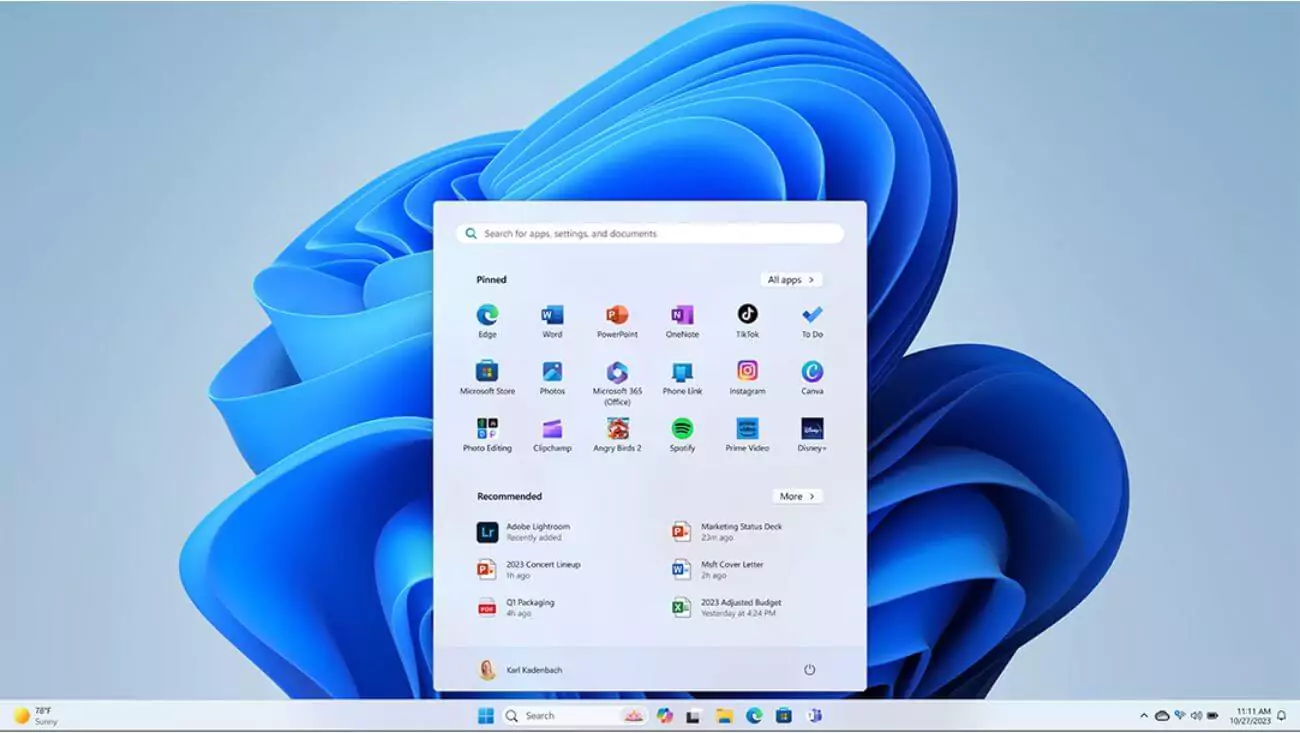
April 26, 2025, Redmond, Washington – Microsoft has released the KB5055627 update for Windows 11, introducing a range of AI-driven features and bug fixes aimed at enhancing productivity, particularly for Copilot+ PC users. This preview update, available through the Release Preview Channel, offers a glimpse into how AI is transforming computing experiences, making tasks like searching and multitasking more efficient.
The KB5055627 update, which brings Windows 11 24H2 to build 26100.3915, is an optional, non-security release, as detailed in Microsoft’s official support bulletin. Users can install it now to test its features before the mandatory rollout in May 2025 during Patch Tuesday. For those juggling multiple tasks across apps and devices, this update could streamline daily workflows significantly.
One of the standout features is Windows Recall, exclusive to Copilot+ PCs with a 40+ TOPS NPU. This AI-powered tool tracks activities across apps, websites, and documents, allowing users to search their history using natural language queries like “find the document I edited last week.” Microsoft has prioritized privacy by requiring users to opt-in and enroll in Windows Hello for secure access to activity snapshots, addressing concerns about AI data privacy. This focus on security is timely, especially as AI tools like Microsoft Copilot continue to evolve with new personal AI features.
The update also enhances Windows Search with semantic indexing, enabling natural language queries such as “show me photos from my summer trip.” This feature operates offline and now supports AMD and Intel-powered Copilot+ PCs, expanding its compatibility. For users who frequently search for files, this improvement could save time and reduce frustration. It builds on Microsoft’s broader AI initiatives, similar to how Apple is using AI for user data privacy in its ecosystem.
Beyond AI, the update improves device connectivity. A new mobile sidebar integrates with Phone Link and Link to Windows apps, allowing users to make calls, send SMS, and share content seamlessly between their PC and mobile devices. This feature could be particularly useful for those who rely on tools like WhatsApp for communication, which recently introduced advanced privacy controls. Additionally, the update fixes rendering issues in the Start menu for “Sign out” and “More options” buttons when text size is adjusted, enhancing accessibility. File Explorer now includes a “Recommended” section for Microsoft 365 files, making recent documents easier to access.
Key Features of KB5055627
Here’s a quick overview of the major updates:
- Windows Recall tracks activities for easy retrieval (Copilot+ PCs only).
- Enhanced Search supports natural language queries offline.
- Mobile sidebar enables calls and SMS via Phone Link.
- Bug fixes improve Start menu rendering and File Explorer usability.
For users interested in exploring other AI advancements, OpenAI’s GPT-4.1 launch offers a comparative look at how AI is shaping technology in 2025. Additionally, those looking to stay updated on tech trends might find value in learning about Instagram’s AI-driven teen detection features, which highlight the growing role of AI in digital platforms. As Microsoft continues to integrate AI into Windows 11, this update marks a step toward a more intuitive computing experience. Have you tried KB5055627? Share your thoughts in the comments below.
-

 AI3 months ago
AI3 months agoDeepSeek AI Faces U.S. Government Ban Over National Security Concerns
-

 Technology2 months ago
Technology2 months agoCOVID-Like Bat Virus Found in China Raises Fears of Future Pandemics
-

 AI2 months ago
AI2 months agoGoogle Gemini Now Available on iPhone Lock Screens – A Game Changer for AI Assistants
-

 Technology2 months ago
Technology2 months agoPokémon Day 2025 Celebrations Set for February 27 With Special Pokémon Presents Livestream
-
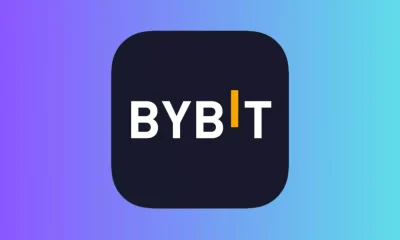
 Technology2 months ago
Technology2 months agoBybit Suffers Record-Breaking $1.5 Billion Crypto Hack, Shaking Industry Confidence
-
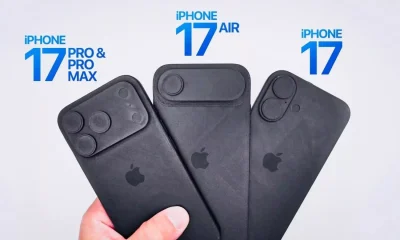
 Technology2 months ago
Technology2 months agoiPhone 17 Air and Pro Mockups Hint at Ultra-Thin Future, Per Leaked Apple Docs
-
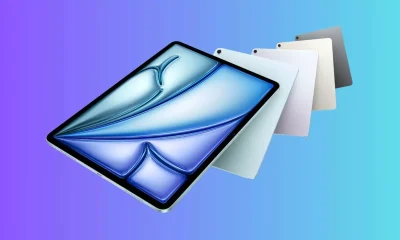
 Technology2 months ago
Technology2 months agoApple Unveils New iPad Air with M3 Chip and Enhanced Magic Keyboard
-

 Technology2 months ago
Technology2 months agoYale Study Identifies Possible Links Between COVID Vaccine and Post-Vaccination Syndrome
